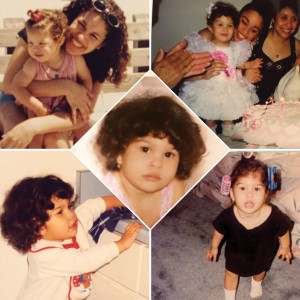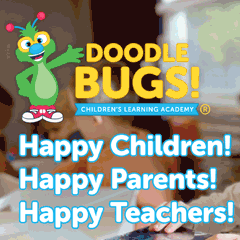A Call to Action
As domestic violence incidents continue to rise in Central Florida, law enforcement agencies and other organizations are increasing their efforts.
Almost two decades have gone by, but Raquel Gonzalez can still close her eyes and see her 2-year-old- daughter’s smile, clear as day.
She can still hear Natalie singing along to her favorite song on the radio, can still feel the positive energy she brought to everyone around her.
Not a day goes by that Gonzalez does not think about her firstborn, and she even speaks with Natalie from time to time as well—especially when she needs to find courage in herself.
“I actually talked to her before having this conversation with you,” Gonzalez admits. “I said to her, ‘Let me say the right words and let me speak from my heart.’ She’s always with me, 24/7. It’s amazing—the bond never breaks. You always have that bond as a mom and a child, whether they’re with you or not. It’s been almost 20 years and she never leaves my side.”
It’s a clear Friday afternoon in the fall and Gonzalez, the office manager at a medical practice, has just finished work for the week. But instead of heading directly home to her family or meeting up with friends for happy hour, the 41-year-old Orlando resident is speaking with a complete stranger, once again sharing her horrific story of domestic violence, which cost Natalie her life.
 Gonzalez’s two-year-long ordeal of abuse took an unimaginable turn on May 21, 1999, when an argument with Juan De Santiago, her live-in boyfriend, became physical—not for the first time. After attacking Gonzalez, he shifted his attention to Natalie, her daughter from a previous relationship.
Gonzalez’s two-year-long ordeal of abuse took an unimaginable turn on May 21, 1999, when an argument with Juan De Santiago, her live-in boyfriend, became physical—not for the first time. After attacking Gonzalez, he shifted his attention to Natalie, her daughter from a previous relationship.
De Santiago locked himself in a room with Natalie and repeatedly punched her in the stomach. She was eventually taken to the hospital after a few hours but died two days later from her injuries— her promising life over before it really started.
With De Santiago now serving a life sentence in prison for first-degree murder, Gonzalez has put the pieces of her life back together. She is married with three children, including 20-year-old daughter Destiny, the biological daughter of her abuser.
She has recounted the details of her abuse countless times, to family members, coworkers, friends and even friends of friends. Lately she has taken her story public, and in October she spoke before 600 people at Harbor House of Central Florida’s Purple Door Luncheon in recognition of Domestic Violence Awareness Month.
“I believe that’s the reason why I survived,” Gonzalez says. “I was left to help others like myself to know what to do or what to look for in order for those things not to happen to them. I really think that I’m not here just to have an 8-to-5 job; I’m here to actually help women and children and raise awareness. … My dream is to help others and I think that’s what my daughter would want for me.”
As appalling as Gonzalez’s story is, it is not all that unique. Data compiled by the Florida Department of Law Enforcement shows the counties of Orange, Seminole and Osceola have combined for 15 to 21 deaths a year from domestic violence over the last six years. Orange County alone has had double-digit fatalities every year but one since 2005 and was second in the state last year with 8,360 domestic violence-related incidents, trailing only Miami-Dade County.
There have also been several high-profile cases in 2018, including Gary Wayne Lindsey Jr., who had a 21-hour standoff with police after his girlfriend reported being abused by him. Lindsey shot and critically injured Kevin Valencia, an Orlando police officer, before killing four children—two of his own—and himself.
Harbor House is attempting to address the problems in multiple ways, according to CEO Michelle Sperzel. First and foremost the organization provides safety and security for someone fleeing a domestic violence situation through temporary emergency shelter and a toll-free confidential hotline. It also presents options and helps a victim plan the next steps in a non-judgmental way.
Just as crucial is continuing to raise awareness and stir the community into action, and not just during Domestic Violence Month. In September, Harbor House joined together with the Orlando Police Department and the Orange County Sheriff’s Office for the It Takes Courage campaign, in which door hangers with potentially life-saving information were hung on doors throughout the region.
“For us, it’s year-long and we’re doing ongoing things to raise awareness,” Sperzel says. “The more we talk about it, the easier it is for someone to come forward.
“It’s more than just physical, even though that’s what the media portrays. There’s domestic violence that’s financial abuse, emotional abuse and mental abuse. We really talk to everybody about that; we go into businesses, work with law enforcement, work with other community partners and talk to them about domestic violence and how they can help and how they can identify the signs.”
Collaboration is a key part of the effort to reduce domestic violence. For example, with shelters constantly being crowded, especially at certain times of the year, Harbor House works with other shelters like SafeHouse of Seminole and Help Now of Osceola to find available space for victims. Those three organizations have also jointly applied for a federal grant to provide housing for survivors, although Sperzel warns that even if it comes through, they won’t receive funds until 2020.
In addition to its shelter, Harbor House has 12 other offices in the Orange County area, including a new outreach center located downtown open to the public. That is where people who need services other than emergency shelter—such as counseling— can come, and Harbor House has advocates affiliated with law enforcement.
“I think our partnerships with the Orlando Police Department and also with the sheriff’s office in Apopka have been fantastic,” Sperzel says. “Because we’re there and actually have offices on- site, we are working with survivors early. So if an officer responds to domestic violence and the survivor there wants to talk to somebody, we’re called to the scene and that is phenomenal.
“I definitely see that as a game-changer because we know that if someone reaches out and starts working with a domestic violence center or starts receiving domestic violence services, they are more likely to be able to leave and the likelihood of them being a victim of domestic violence that is lethal gets reduced. Having partnerships like that are invaluable for the people living in Orange County and it’s another way for us to reach survivors early who might not even know they need our services.”
The Orlando PD and Harbor House have created a threat assessment checklist for domestic violence calls to help determine if victims are in further danger. Police on the scene ask questions about the history of abuse, if death threats have been made, whether the abuser has hurt pets in the home, etc. According to Sgt. Eric Goebelbecker, a 24-year veteran of the department, fatalities have gone down since the checklist was instituted last year and he believes they will continue to drop.
“We look at it and if several of the key questions were answered [affirmatively], we reach out to the victim right away,” he says. “It’s a proactive thing where we’re calling them. Either the detective in [domestic violence] or the Harbor House advocate reaches out to get them help and offer services. They can start the process, whether they need to get an injunction, they need to find a shelter or they need relocation money. … That’s how we try to avoid the reoccurrence of domestic issues or even fatalities.”
The Orlando PD has the only domestic violence response team in Central Florida. It consists of officers who receive special training and are experts in the statutes and procedures related to domestic violence. Goebelbecker was part of the team when it was originally started almost 20 years ago, and several years back he helped reinvigorate it by recruiting new members and making sure policies were being followed.
“In domestic calls you have to hand pamphlets out, you have to make contact with the shelters, you have to make contact with the [Florida Department of Children and Families] if kids are involved, you have to document injuries,” he says. “You have to do all these different things per statute and our policy and I wanted to make sure everybody was caught up to date, because we were seeing in the reports that people had forgotten or maybe hadn’t been trained or weren’t keeping up with the changing laws. This was our way of educating the department.”
In addition, the Orlando PD is once again working with the state attorney’s office to enforce no-contact orders, and Harbor House has a legal advocacy team to aid victims in filing injunctions for protection.
All of these measures are important because, as Gonzalez’s case proves, domestic violence can happen to anyone. Although many victims were around abuse as children and in previous adult relationships, others like Gonzalez came from happy homes.
“My parents are still married,” she says. “I have family that is there for me 24/7 and we’ve always been very tight. Not just my parents, but my siblings, my uncles and aunts. … So to be introduced to abuse was completely unfathomable. [I thought], ‘That’s never going to happen to me. That only happens in movies.’ I was never introduced to the types of behavior to look out for because I didn’t believe that existed or would ever exist in my life.”
Gonzalez says the verbal abuse sticks with her even more than the beatings and warns people to be wary of manipulative behavior or partners who isolate their significant others from family and friends.
“A lot of people think when you’re in an abusive relationship it’s like the movies where they’re drunk all the time and always beating you. It wasn’t like that,” she says. “About 40 percent of the time it was like a normal relationship. We watched movies, we cuddled. Then he would turn into a demonic being; he would just switch from this loving person I wasn’t afraid of to someone who I was completely terrified of a split second later.”
Gonzalez knows many people are in the same situation now, and she encourages them to seek out the help and resources available from organizations like Harbor House. She plans on continuing to fight for change herself, in honor of Natalie.
“My biggest accomplishment would be to save a child’s life or a person’s life, because I know I could have saved my daughter’s life,” she says. “I could have if I had the mentality and the feelings and the confidence that I have now. I would get in front of a moving train to save a child’s life.
“I would hate for anybody to go through what I went through. There is so much help out there. If I could just reach out and give a hug or save a life; that would be my dream. I know my daughter’s death wasn’t in vain. She’s been wanting me to do this … and she gives me courage to do what I do.”
This article originally appeared in Orlando Family Magazine’s November 2018 issue.









